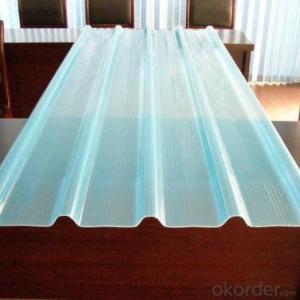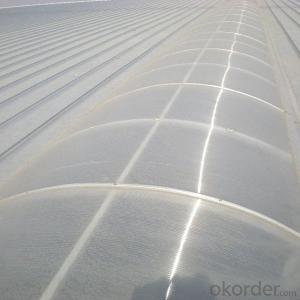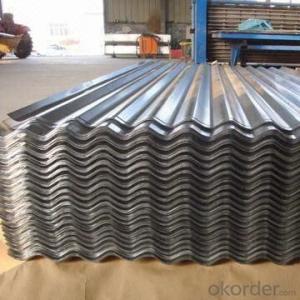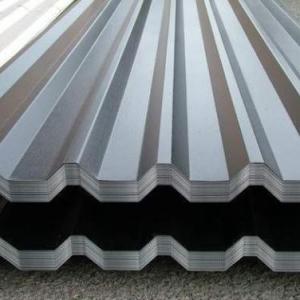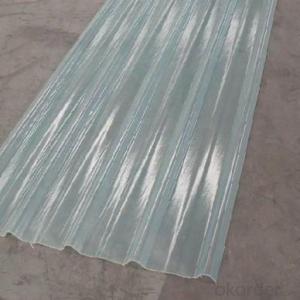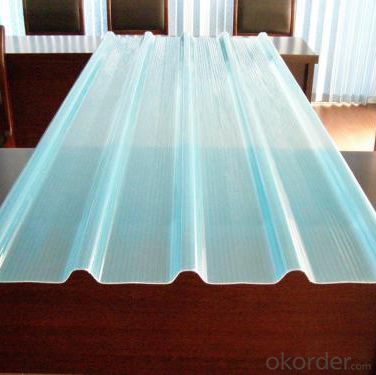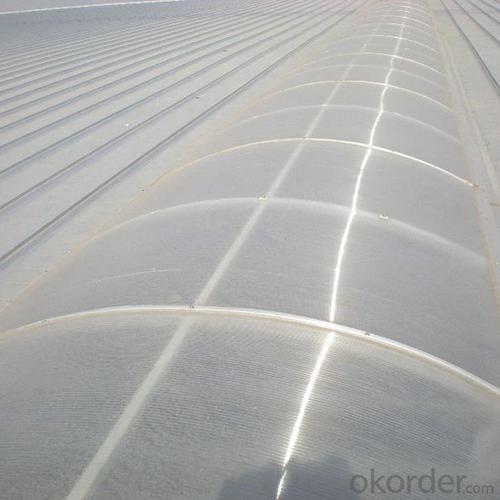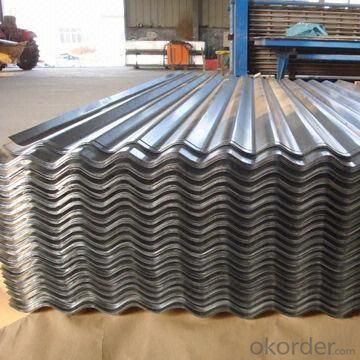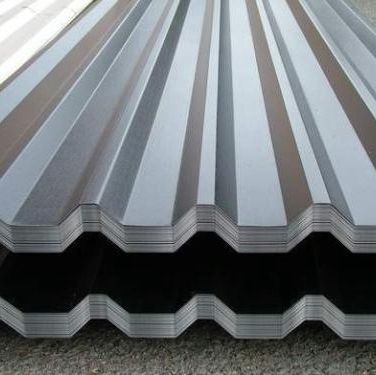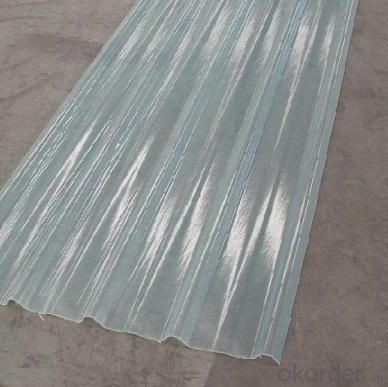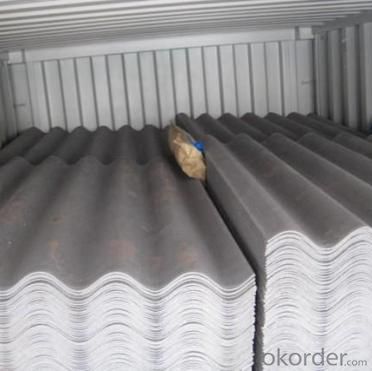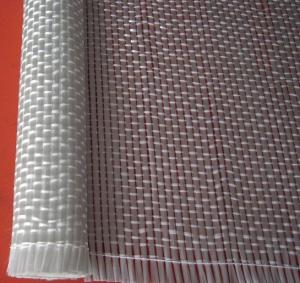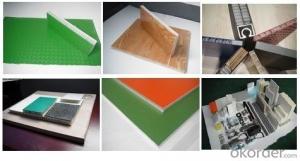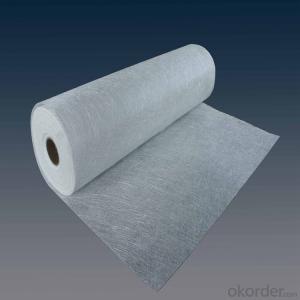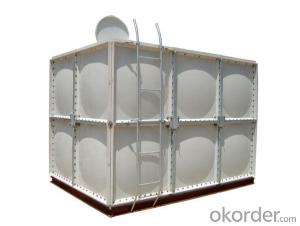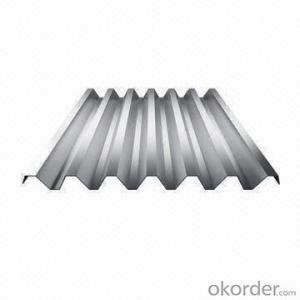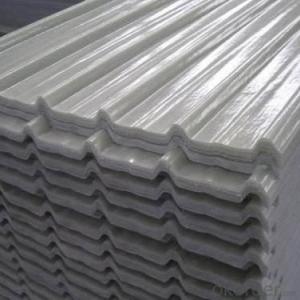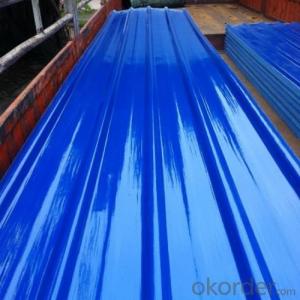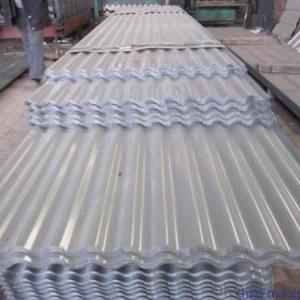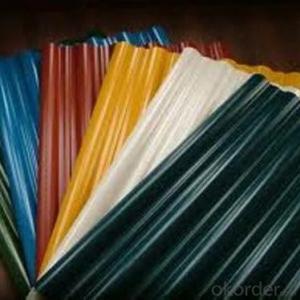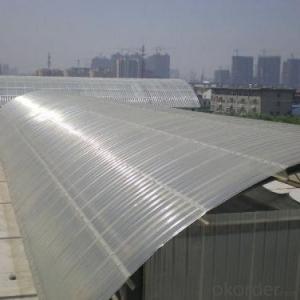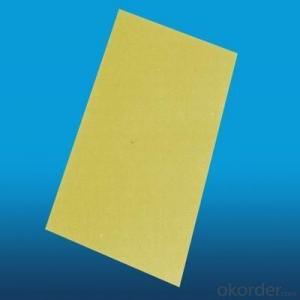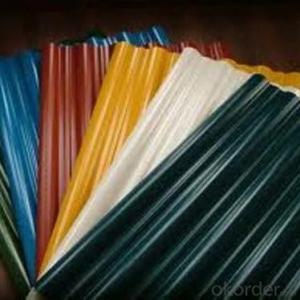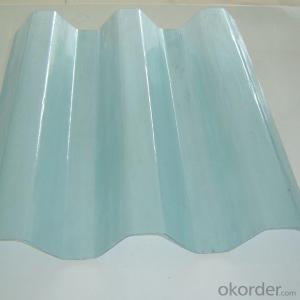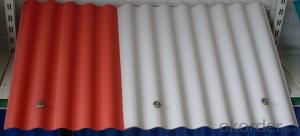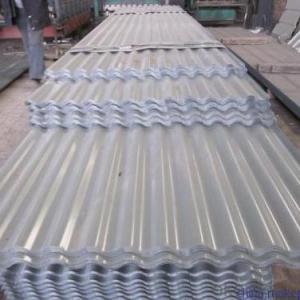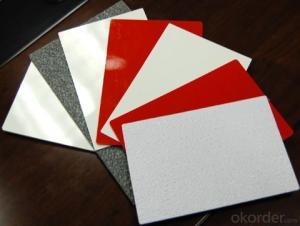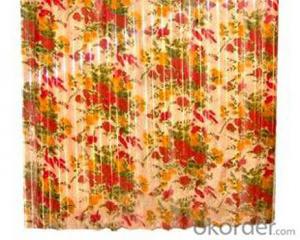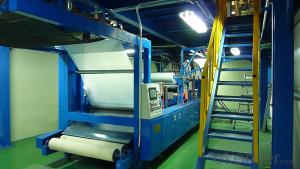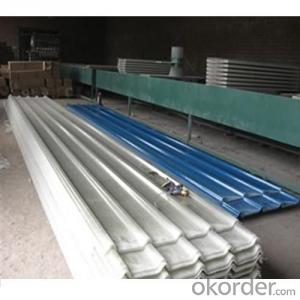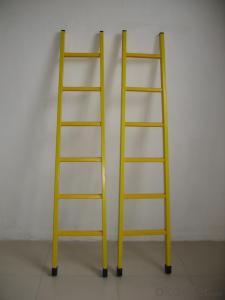High Quality FRP Roofing Panel - Corrugated Roof Sheet for Roofing
- Loading Port:
- Tianjin
- Payment Terms:
- TT OR LC
- Min Order Qty:
- 20 m
- Supply Capability:
- 50000 m/month
OKorder Service Pledge
OKorder Financial Service
You Might Also Like
Specification
PRODUCT DESCRIPTION
FRP GRP Fiberglass Glassfiber Corrugated Roofing is a patent of our company, not like other FRP products, it is produced without yarn, instead, we use mat only. Therefore, the corrugated sheet is more strong in both horizontal and vertical direction.
Fiberglass corrugated sheet is usually used in construction site as protecting facility. It is dagarous for workers in building site since you never know if there is something hard drop down from the high area. So corrugated sheet is installed for preventing the stuff dropping down to hurt people.
Besides, it could also applied as the roof of the constructions.
FEATURES
1). Light Transmission: The light transmission of FRP roof sheet is between 3%-85%. Light through FRP corrugated sheet scatters and is mild. It will not form a light so as to make the indoor brighter.
2). Weather resistant: The UV agent mixing in the corrugated sheet, which can truly resist the damage of ultraviolet ray, which can truly resist the damage of ultraviolet ray.
3). Flame retardant: B1 grade.
4). Anti-corrosion: It resists chemical corrosion and its life span is over 3 times longer than zinc panel.
5). Water proof:100% water proof.
6). Impact capacity: resist impact, tensile and hardly breakable.
SPECIFICATION
| Fiber | E-glass chopped strand mat |
| Resin | Unsaturated polyester |
| Fiber content | 31.50% |
| Thickness | 1.2/ 1.5/ 2.0mm(±10%) |
| Transparent Rate | 30%-90% |
| Length | No limit |
| Gel coating | 150um |
| Warranty | 15/ 25years |
PICTURES
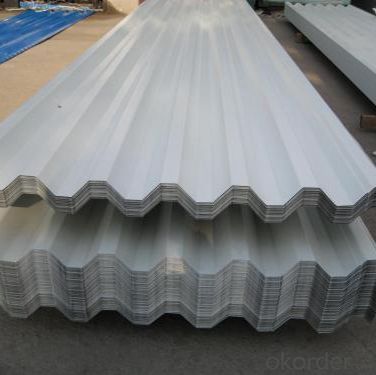
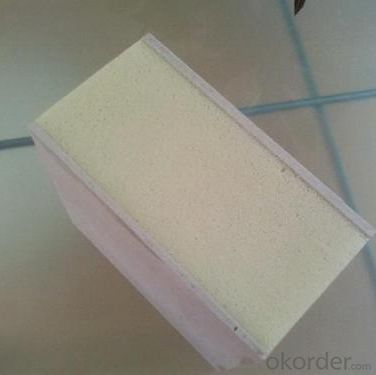
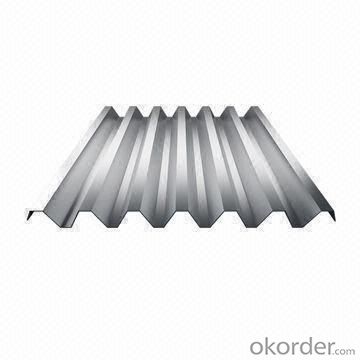
- Q: Can FRP roofing panels be used for patio covers?
- Certainly! Patio covers can indeed utilize FRP (Fiberglass Reinforced Plastic) roofing panels. These panels, being lightweight and durable, are well-suited for patio covers as they can withstand diverse weather conditions. Moreover, FRP roofing panels are specifically designed to endure UV rays, extreme temperatures, and moisture, ensuring their longevity. Additionally, these panels offer a wide range of options in terms of colors, styles, and sizes, enabling you to select the ideal fit for your patio cover. They are also effortless to install, require minimal upkeep, and can enhance the aesthetic and functionality of your outdoor area.
- Q: Can FRP roofing panels be installed on concrete structures?
- Yes, FRP roofing panels can be installed on concrete structures. These panels are versatile and can be attached to various types of substrates, including concrete. They provide durability, weather resistance, and are lightweight, making them suitable for installation on concrete structures.
- Q: Can FRP roofing panels be installed without professional assistance?
- Yes, FRP (Fiberglass Reinforced Plastic) roofing panels can be installed without professional assistance, but it is highly recommended to have some level of knowledge, experience, and proper tools to ensure a successful installation. While FRP panels are generally lightweight and easy to handle, there are certain steps and precautions that need to be followed to guarantee a proper and secure installation. Firstly, it is important to have a clear understanding of the instructions provided by the manufacturer. These instructions usually outline the necessary tools, materials, and procedures for installing FRP roofing panels. It is crucial to follow these instructions carefully to avoid any potential damage or safety hazards. Before installing FRP roofing panels, it is important to prepare the roof surface properly. This may involve cleaning the surface, removing any debris or loose materials, and ensuring a smooth and even surface to ensure proper adhesion. During the installation process, it is important to use the appropriate tools and techniques. These may include using a drill with the appropriate drill bits for making holes, using screws or adhesive recommended by the manufacturer, and ensuring proper alignment and spacing of the panels. Adhering to the recommended installation methods will ensure a sturdy and watertight roof. While it is possible to install FRP roofing panels without professional assistance, it is always advisable to consult with a professional or seek guidance from the manufacturer if you are unsure about any aspect of the installation process. They can provide valuable advice, answer any questions, and ensure that the installation is done correctly and safely.
- Q: Are FRP roofing panels resistant to chemical exposure from nearby industries?
- Yes, FRP roofing panels are generally resistant to chemical exposure from nearby industries. FRP stands for Fiber Reinforced Plastic, and these panels are made by combining fibers, such as fiberglass, with a resin matrix. This composition gives FRP panels excellent resistance to a wide range of chemicals. The specific level of chemical resistance may vary depending on the specific type of resin used in the FRP panels. However, in general, FRP roofing panels are designed to withstand exposure to various industrial chemicals, including acids, alkalis, solvents, and other corrosive substances. It is important to note that while FRP panels are resistant to most chemicals, they may not be completely impervious to all types of chemical exposure. Highly concentrated or extremely corrosive chemicals may still cause some damage over time. Therefore, it is advisable to consult with the manufacturer or an expert to determine the suitability of FRP roofing panels for a specific industrial environment. In addition to their chemical resistance, FRP roofing panels offer several other advantages, such as durability, lightweight construction, and UV resistance. These panels are also easy to install and maintain, making them a popular choice for industrial and commercial buildings in areas with potential chemical exposure.
- Q: Are FRP roofing panels suitable for agricultural buildings?
- Yes, FRP (fiberglass reinforced plastic) roofing panels are suitable for agricultural buildings. FRP panels offer numerous benefits that make them a popular choice for agricultural applications. Firstly, FRP panels are lightweight, durable, and strong, making them capable of withstanding heavy loads, such as snow or hail, without buckling or collapsing. This is particularly important for agricultural buildings as they often require a sturdy roof to protect livestock, equipment, or crops. Additionally, FRP panels are resistant to corrosion, rust, and chemicals commonly found in agricultural environments, such as fertilizers and animal waste. This resistance ensures that the panels will maintain their integrity and functionality over time, reducing the need for frequent maintenance or replacement. Another advantage of FRP panels is their excellent thermal insulation properties. They can help regulate the temperature inside the agricultural building, keeping it cooler in summer and warmer in winter. This is particularly beneficial for livestock or crop storage, as it helps create a comfortable and controlled environment. Furthermore, FRP panels are also UV resistant, meaning they can withstand prolonged exposure to sunlight without degrading or discoloring. This is crucial for agricultural buildings that are often exposed to harsh weather conditions, including intense sunlight. In summary, FRP roofing panels are highly suitable for agricultural buildings due to their lightweight yet sturdy construction, resistance to corrosion and chemicals, thermal insulation properties, and UV resistance. These features ensure that FRP panels can provide long-lasting protection and durability in agricultural environments, making them an excellent choice for farmers and agricultural building owners.
- Q: Can FRP roofing panels be used in agricultural buildings?
- Yes, FRP (Fiberglass Reinforced Plastic) roofing panels can be used in agricultural buildings. FRP panels are known for their durability, strength, and resistance to various weather conditions, making them suitable for use in agricultural environments. These panels provide excellent protection against UV rays, corrosion, and chemicals, making them ideal for agricultural buildings where exposure to these elements is common. Additionally, FRP roofing panels are lightweight, easy to install, and require minimal maintenance, making them a cost-effective choice for farmers and agricultural businesses. Overall, FRP roofing panels are a reliable option for agricultural buildings due to their durability, weather resistance, and low maintenance requirements.
- Q: Can FRP roofing panels be used in skylights?
- Yes, FRP (Fiberglass Reinforced Plastic) roofing panels can be used in skylights. FRP panels are lightweight, durable, and resistant to UV rays, making them suitable for skylight applications. They provide excellent light transmission, insulation, and can be custom-made to fit various skylight sizes and shapes.
- Q: Do FRP roofing panels require special ventilation?
- Yes, FRP (fiberglass reinforced plastic) roofing panels do require special ventilation. Proper ventilation is important to prevent heat build-up and condensation underneath the panels. Without sufficient ventilation, the trapped heat can cause the panels to warp or deteriorate over time. Additionally, condensation can lead to moisture-related issues such as mold and mildew growth. To ensure the longevity and performance of FRP roofing panels, it is recommended to install proper ventilation systems such as ridge vents, soffit vents, or exhaust fans. These ventilation systems will allow for proper air circulation, helping to regulate temperature and reduce the risk of moisture-related problems.
- Q: Can FRP roofing panels be used in agricultural applications?
- Yes, FRP (Fiber Reinforced Plastic) roofing panels can be used in agricultural applications. FRP roofing panels are known for their durability, strength, and resistance to corrosion, making them suitable for various agricultural settings. These panels can effectively withstand harsh weather conditions such as heavy rainfall, strong winds, and extreme temperatures, ensuring the protection of livestock, equipment, and crops. Additionally, FRP roofing panels are lightweight, making installation easier and cost-effective. They are also low-maintenance, which is beneficial for agricultural applications where time and resources are limited. Overall, FRP roofing panels are a reliable choice for agricultural applications due to their durability, resistance to environmental factors, and ease of installation and maintenance.
- Q: Are FRP roofing panels compatible with different roof slopes?
- Yes, FRP (fiberglass reinforced plastic) roofing panels are compatible with different roof slopes. These panels are commonly used in both flat and sloped roofs, as they offer excellent durability and weather resistance. FRP panels can be installed on roofs with varying degrees of slope, from low-pitched roofs to steeper slopes. However, it is important to note that the installation process may differ depending on the slope of the roof. For low-pitched roofs, additional sealants or adhesives may be required to prevent any potential water leakage. On the other hand, for steeper slopes, fasteners and proper mounting techniques may be necessary to ensure the panels are securely attached. Consulting with a professional or following the manufacturer's guidelines is recommended to ensure proper installation and compatibility with different roof slopes.
Send your message to us
High Quality FRP Roofing Panel - Corrugated Roof Sheet for Roofing
- Loading Port:
- Tianjin
- Payment Terms:
- TT OR LC
- Min Order Qty:
- 20 m
- Supply Capability:
- 50000 m/month
OKorder Service Pledge
OKorder Financial Service
Similar products
Hot products
Hot Searches
Related keywords
